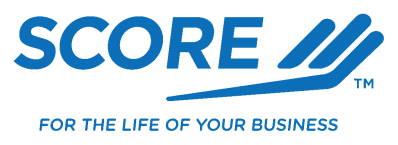7 Ways to Finance Your Business
Investors, loans and other means of credit can keep an enterprise afloat
Access to capital often determines whether a fledgling enterprise succeeds or fails. There are several common types of business financing options available to young companies.
Angel investors
Angel investors are an excellent source of early-stage financing. They are often willing to tread where there is too much risk for banks and not enough profit potential for venture capitalists. Angels will invest for a longer time-horizon than will other investors—up to five years or more. They may also invest smaller amounts—$1 million or less.
Venture capital
Venture capitalists, by contrast, have stringent investment criteria and generally specialize in specific, high-growth industries. Because they want a way to cash out in three to five years, venture capitalists usually shy away from very new businesses and rarely invest less than $5 million at a time. Accepting a venture capital investment also represents the potential loss of independence for owners, because venture capitalists often take an active role on the company's board and may push a specific strategic agenda.
Commercial banks
Commercial loans are attractive because they don't require entrepreneurs to turn over equity or company control. But servicing debt can drain a young company with limited cash flow. New companies may not even have access to bank loans if they have no operating history and no collateral to secure the loan.
Businesses seeking $100,000 or less, however, can often find unsecured loans available through a simple application process focusing on the owner's personal credit history. Business owners with personal assets can also obtain secured loans against those assets.
Small Business Administration
SBA loan guarantees can mean the difference between getting a bank loan and being entirely shut out. The federal agency loans no money directly. Instead, it guarantees 75 percent of individual loans made by private lenders, up to $750,000. But a business must first show that it cannot obtain conventional financing at reasonable terms.
Business owners must personally guarantee SBA loans and must also show cash flows sufficient to repay the loan. Most commercial banks offer information about SBA loans.
Home equity loans
Home equity loans are a cost-effective alternative to other types of loans because they offer some of the best interest rates available. But you may not want to risk your family home to launch your business venture. Before going this route, you should carefully consider the risks involved.
Credit cards
Cash advances from credit cards are an easy and quick way to gain access to cash. But as a long-term financing method, they can be expensive. Credit card interest rates typically run much more than the 1 to 3 percent “over prime” that you would likely pay on a bank loan.
If you use credit cards, shop for the best interest rate. Introductory “teaser” rates often give you a bargain for up to six months. If you have the time and energy, you can roll over your debt to a new card every six months, taking advantage of a new teaser rate.
Equipment leasing
Equipment lease financing is an option for many cash-starved businesses. Equipment leases give you access to many types of equipment—computers, copiers, fax machines, cars and trucks—without tying up your cash or credit lines. Although it doesn't bring in cash, leasing reduces the amount of cash you otherwise have to raise. Leasing generally proves more costly than buying in the long run, but if cash flow is an issue for your company, it's definitely something to consider.
Copyright AllBusiness.com. Republished with permission from SCORE. All Rights Reserved.


